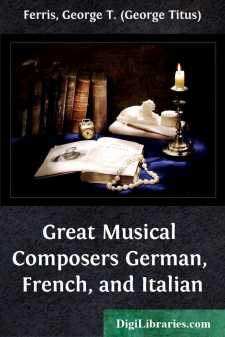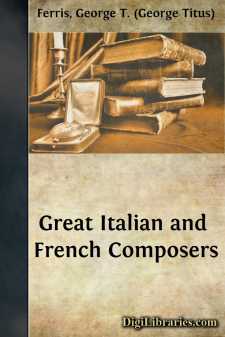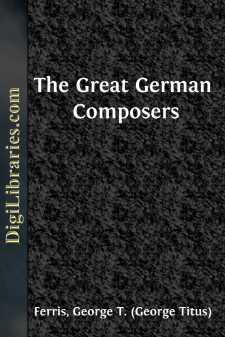Categories
- Antiques & Collectibles 13
- Architecture 36
- Art 48
- Bibles 22
- Biography & Autobiography 813
- Body, Mind & Spirit 142
- Business & Economics 28
- Children's Books 16
- Children's Fiction 13
- Computers 4
- Cooking 94
- Crafts & Hobbies 4
- Drama 346
- Education 46
- Family & Relationships 57
- Fiction 11829
- Games 19
- Gardening 17
- Health & Fitness 34
- History 1377
- House & Home 1
- Humor 147
- Juvenile Fiction 1873
- Juvenile Nonfiction 202
- Language Arts & Disciplines 88
- Law 16
- Literary Collections 686
- Literary Criticism 179
- Mathematics 13
- Medical 41
- Music 40
- Nature 179
- Non-Classifiable 1768
- Performing Arts 7
- Periodicals 1453
- Philosophy 64
- Photography 2
- Poetry 896
- Political Science 203
- Psychology 42
- Reference 154
- Religion 513
- Science 126
- Self-Help 84
- Social Science 81
- Sports & Recreation 34
- Study Aids 3
- Technology & Engineering 59
- Transportation 23
- Travel 463
- True Crime 29
George T. (George Titus) Ferris
George Titus Ferris was an American writer best known for his series of biographical sketches of famous historical figures. His works, such as "Great Leaders" and "Great Singers," aimed to provide accessible and engaging profiles of influential people. Ferris's writing contributed to popularizing the study of history and biography in the late 19th century.
Author's Books:
Sort by:
Introduction. THE following biographical sketches were originally published in America by Mr. George T. Ferris, in two volumes, separately entitled The Great German Composers and The Great Italian and French Composers. They have achieved the success they deserved: for while we have whole libraries of books upon the history and technicalities of music in general, upon musical theories and schools, and...
more...
THE VIOLIN AND EARLY VIOLINISTS. The Ancestry of the Violin.—The Origin of the Cremona School of Violin-Making.—The Amatis and Stradiuarii.—Extraordinary Art Activity of Italy at this Period.—Antonius Stradiuarius and Joseph Guarnerius.—Something about the Lives of the Two Greatest Violin-Makers of the World.—Corelli, the First Great Violinist.—His Contemporaries and...
more...
FAUSTINA BORDONI. The Art-Battles of Handel's Time.—The Feud between Cuzzoni and Faustina.—The Character of the Two Rivals as Women and Artists.—Faustina's Career.—Her Marriage with Adolph Hasse, and something about the Composer's Music.—Their Dresden Life.—Cuzzoni's Latter Years.—Sketch of the Great Singer Farinelli.—The Old Age of hasse and Faustina.I.During the...
more...
PALESTRINA.I.The Netherlands share other glories than that of having nursed the most indomitable spirit of liberty known to mediteval Europe. The fine as well as the industrial arts found among this remarkable people, distinguished by Erasmus as possessed of the patientia laboris, an eager and passionate culture. The early contributions of the Low Countries to the growth of the pictorial art are well...
more...
BACH. I. The growth and development of German music are eminently noteworthy facts in the history of the fine arts. In little more than a century and a half it reached its present high and brilliant place, its progress being so consecutive and regular that the composers who illustrated its well-defined epochs might fairly have linked hands in one connected series. To Johann Sebastian Bach must be...
more...
MARIA FELICIA MALIBRAN. The Childhood of Maria Garcia.—Her Father's Sternness and Severe Discipline.—Her First Appearance as an Artist on the Operatic Stage.—Her Genius and Power evident from the Beginning.—Anecdotes of her Early Career.—Manuel Garcia's Operatic Enterprise in New York.—Maria Garcia is inveigled into marrying M. Malibran.—Failure of the Garcia Opera, and...
more...







